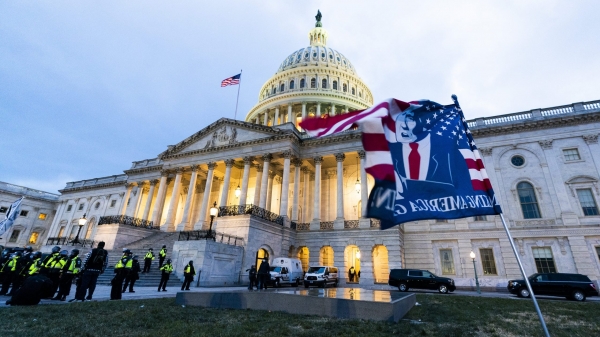A report published Tuesday highlights Alabama’s secretive incentives for businesses, and urges lawmakers to improve transparency and hold businesses accountable for promises made about job creation and wages.
The report by the Los Angeles-based national public policy nonprofit Jobs to Move America details how the state of Alabama provides those incentives to businesses, through subsidies, property tax abatements, tax-based incentives, worker development and training, loans and grants. It also explains how the state keeps much about those deals largely secret, and notes a lack of accountability that allows companies to reap the rewards of Alabama taxpayer dollars without living up to their promises
Former Alabama Rep. Patricia Todd, now southern policy manager with Jobs to Move America, told APR on Tuesday that it was as a legislator and a member of the Education Budget Committee for seven years that she started to question the state’s incentives to businesses.
“Because I could never get information about how many? How much? To whom. Anything. It was like ‘well, we can’t say that. It’s proprietary’.”
The report is not intended to say all state incentives to businesses are bad, Todd explained, but rather that more transparency and accountability are needed to ensure taxpayers are benefiting from the public money being spent.
The report notes that between 1993 and 2020, Alabama lawmakers gave away more than $4 billion in public tax to corporations in the form of subsidies.
“But none of the incentives require a living wage. They don’t require local hire,” Todd said.
A 2018 state law requires an audit of economic tax incentives every four years, but the law doesn’t mandate that an outside firm conduct the audit, leaving the same agency providing the subsidy to also conduct the evaluation, according to the report.
“This year, 2021, was the first time that a report was provided to legislators on the cost of incentives and number of applicants for each incentive program, but the report still excluded the names of the companies that received the incentives,” the report reads.
“And we know what the requirements are in the agreement. How many jobs were you to create? What’s the starting pay? Do they have to pay their health insurance? These are just some things that are best practices in state finance,” Todd said.
The report highlights Alabama’s $195 million in subsidies to the German steel company ThyssenKrupp in 2006 to build a manufacturing plant in southern Alabama.
“Those of us who were just elected were not familiar with incentives and the state debt limit and did not receive adequate information to make a sound decision. Subsidies were not included in the budgeting process and there were no public hearings on the topic,” Todd wrote in the report.
Regardless, then-Gov. Bob Riley ensured lawmakers that the incentives were necessary, so the Legislature approved them.
“Six years later, in 2012, ThyssenKrupp filed for Chapter 11 bankruptcy and later sold for $1.55 billion dollars,” Todd wrote. “Despite requests, legislators did not receive information about whether the incentives were recouped.”
The report also details a $15.1 million expansion at New Flyer of Anniston, an electric bus manufacturer, in 2017 that would create 21 jobs, citing a March 8, 2017, article in The Anniston Star written by this reporter who obtained a copy of the incentive package.
Anniston’s Industrial Development Authority board had approved an incentive package that included $631,000 in city non-educational property tax, sales and use tax abatements over a period of 10 years. Additionally, the company would save about $723,000 in state and county sales and use taxes through the agreement, for a total incentive package of about $1.4 million.
When Jobs to Move America requested the incentives agreement, it showed that the company had promised just 12 jobs, not 21.
When Todd asked for an accountability report supplied by New Flyer of Anniston, she said she was told “we never receive a report and we don’t ask for one.” Additionally, some workers there live in Georgia, she said, which is why the nonprofit is pushing for local hire provisions to ensure Alabama taxpayers benefit from these incentive packages.
Some states do a better job at ensuring accountability in corporate incentives, Todd said, including Kentucky, which passed a law that requires a separate tax incentive budget, which provides a comprehensive accounting of all such subsidies and grants.
“Mississippi just passed a big transparency bill a couple of years ago, so you can find out exactly what they’ve done in incentives,” Todd said. “We need to get there, but the people who are doling out the money, like commerce and the executive branch. They don’t want anybody to know this.”
The status quo in Alabama favors those corporations at the detriment to taxpayers, who can’t see exactly what’s been gained from their money, if anything, and what’s been sacrificed in the process, the report explains.
“When you look at our social indicators. Our education attainment, poverty rate. They’re pitiful, and we’re sucking money out of programs, like money to expand Medicaid, to give to profitable corporations. That’s just not a good practice,” Todd said.






















































